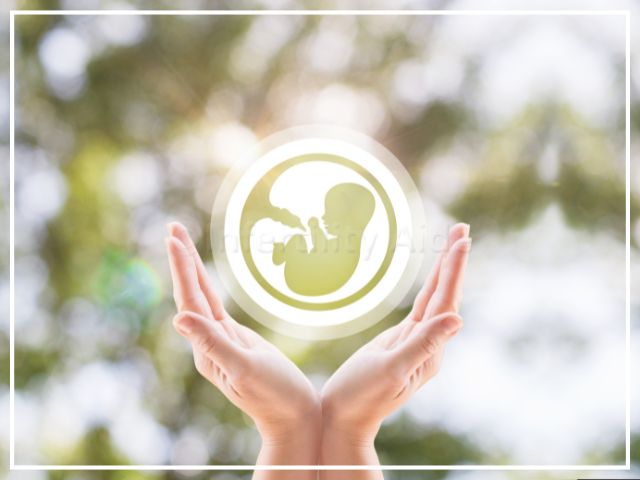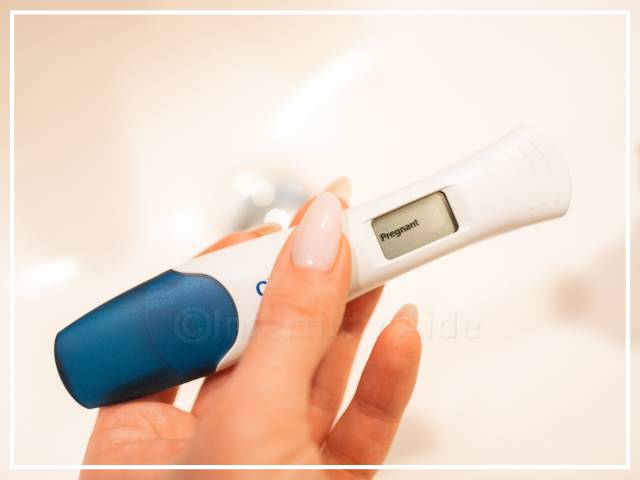The two week-wait to confirm your pregnancy after an embryo transfer is challenging for some women. It is normal to have your mind flooded with questions like what happens after embryo transfer and what should or should not you be doing?
Can I travel after embryo transfer? Or do any physical activities during this time? What are the positive signs of a successful embryo transfer? —these are all the questions we get from anxious patients.
All this overthinking can build up a lot of stress, and that is not good for conceiving. To help ease your anxiety, let’s discuss the journey of an embryo and some common dos and don’ts after an embryo transfer.

What happens after an embryo transfer day by day?
Hatching (Day 1 and 2)
- Day 1 & 2 – Inside your uterus, the blastocyst starts to hatch from its shell and moves closer to the uterine lining. Embryo implantation occurs around 2 days after IVF transfer.
Implantation (Day 3 to 5)
- Day 3 – The blastocyst attaches deeper into the endometrium
- Day 4 – Implantation continues
- Day 5 – Implantation completes and the cells that eventually become the placenta and the fetus start developing
hCG production & fetal development (Day 6 to 9)
- Day 6 – Production of Human Chorionic Gonadotropin (hCG) – the hormone that signals a developing baby
- Day 7 & 8 – Fetal development continues and more hCG is secreted into the bloodstream.
- Day 9 – High levels of hCG. Time for a pregnancy test!

What to eat after embryo transfer?
Your physical activity, your diet after embryo transfer, stress, and other environmental factors can impact the outcome as your body tries to prepare for pregnancy.
It is important to maintain a balanced diet with IVF treatment. Foods that are rich in vitamins and minerals, magnesium, zinc, and folic acid, cruciferous vegetables, fiber, and omega fatty acids, lean meat like poultry, and low-fat dairy products are great for you. Make sure to drink enough water and take a low-carb diet. Include bananas, beet, berries, broccoli, sweet potatoes, sprouts, green leafy vegetables, dates, eggs, salmon, yogurt, nuts, sardines, beans, etc. in your diet.
Avoid having tea, coffee, or soda, especially during the evening as it may affect your sleep cycle.
Do you need bed rest after embryo transfer?
Most doctors recommend at least 30 minutes of bed rest after embryo transfer but according to a study published in Fertility and Sterility(1), bed rest after ET did not help improve clinical pregnancy rates in women.
No, bed rest is not required or helpful after ET unless your doctor specifically recommends it because of your medical situation.
Some mild activities may be started to ensure that there is continued blood flow in your uterus, which may further help the embryo implantation. You can use the stairs, walk, or do mild cardio but avoid any strenuous exercise or extreme bending after embryo transfer.
Instead, if you already practice yoga, you can do some light fertility yoga exercises like bhramari pranayam (bee breathe pose), nadi shodhan pranayam (alternate nostril breathing), or baddha konasana (butterfly pose) to help regulate the hormones and improve transportation of nutrients and blood flow in your uterus. Also, it is advisable to abstain from sexual intercourse immediately after embryo transfer.
What is the best sleeping position after IVF?
After IVF, you can sleep in any position you like without any risk but getting into the habit of sleeping on your side is always advantageous. Try not to sleep on your stomach. This is to ensure a good supply of blood and oxygen to the growing embryo.
Avoid exposure to blue light or accessing your mobile or laptop before going to bed.
In a pilot study in the Journal of Sleep Medicine, sleep disturbances are thought to be frequent in patients undergoing IVF due to a variety of hormonal and psychological reasons (2).
Try to get into a better sleep routine ahead of your IVF cycle by meditating or listening to some relaxing music or reading a book for better sleep.
Also, it is important to sleep on time. A hormone called melatonin is naturally produced by our body soon after the darkness that helps promote sleep. In a study among 60 patients, it was found that melatonin improves the eggs and embryos in IVF patients with sleep disturbances (3).
So, try to turn the lights off to establish harmony with the circadian rhythm of your body.
Is it safe to travel after embryo transfer?
There are no major restrictions for travelling after IVF. Flying after embryo transfer is generally safe and you can be on the flight within 24 hours of your ET. For long-haul flights you must take normal precautions like moving your legs periodically and having enough liquids.
Bumpy car ride after embryo transfer
Pregnancy through IVF is a delicate process. If you are traveling by road, avoid taking bumpy care rides, which could cause jerky movements. This is especially important to consider if you have a weak endometrium or are diagnosed with endometriosis.
What to expect after embryo transfer?
1. Missed periods
If you have a regular cycle, then missed periods are the best indication of a successful embryo transfer. You can use over-the-counter pregnancy test kits to confirm this. If you are pregnant, your body will start producing hCG, which can be detected by these kits. Once confirmed, consult your doctor for a scan and further confirmation.
2. Spotting after ET
When an embryo embeds itself in the lining of the uterus, it can cause a small amount of blood loss, which is called spotting. Spotting is different from period and the former is usually light-pink to dark brown.
However, if you are undergoing an IVF treatment, spotting might also be a false alarm due to:
- The result of the IVF treatment and the hormonal medications you have been taking.
- Bleeding at the start of the period, which occurs due to loss of progesterone and indicates that implantation has not taken place
3. Tender and sore breasts
If your breasts are swollen or tender to the touch you might be pregnant. The areolas may also appear darker. However, this could also be a side effect of progesterone and fertility medications.
4. Increased need to urinate
If you are making frequent trips to the bathroom during the two-week wait period, it may indicate that you are pregnant. This happens due to an increase in levels of hCG, progesterone, and extra rush of blood in your body. However, if you are experiencing painful urination, bleeding, or vomiting, contact your doctor.
5. Lower back pain after embryo transfer
Lower back pain in IVF is a common symptom of pregnancy that occurs after 7 days after embryo transfer.
It happens when the ligaments of your body naturally stretch and become softer to prepare for the pregnancy term and labor. This can result in strain on joints and the pelvis and cause pain in the lower back.
Some other positive signs of pregnancy after embryo transfer are bloating, nausea, excess vaginal discharge that has a milky-white appearance, mood swings, high basal body temperature, cramping, and pelvic pain.
If you notice these, it may be a good sign. The next step is to do an at-home test and visit the doctor to confirm the pregnancy. Your fertility doctor will further guide you, fix schedules, and prescribe medications for the rest of the term of the pregnancy.
IVF can be stressful anxious but knowing what happens after embryo transfer can help ease your anxiety while you wait to do the pregnancy test. If you need a doctor’s opinion or want to plan your IVF, use the red contact button on the right.
References
- Karen J. Purcell, Michael Schembri, Tracey L. Telles, Victor Y. Fujimoto, Marcelle I. Cedars, Bed rest after embryo transfer: a randomized controlled trial, Fertility and Sterility, Volume 87, Issue 6, 2007, Pages 1322-1326, ISSN 0015-0282, https://doi.org/10.1016/j.fertnstert.2006.11.060.
- Cathy A. Goldstein, MD, MS, Michael S. Lanham, MD, Yolanda R. Smith, MD, MS, and Louise M. O’Brien, PhD, MS, Sleep in women undergoing in vitro fertilization: a pilot study, Sleep Med. 2017 Apr; 32: 105–113. doi: 10.1016/j.sleep.2016.12.007
- Ozlem Gun Eryilmaz, Aysun Devran, Esma Sarikaya, Fatma Nur Aksakal, Leyla Mollamahmutoğlu, Nedim Cicek, Melatonin improves the oocyte and the embryo in IVF patients with sleep disturbances, but does not improve the sleeping problems, J Assist Reprod Genet. 2011 Sep;28(9):815-20. DOI: 10.1007/s10815-011-9604-y
Reviewd by: Dr. Meenakshi, PhD